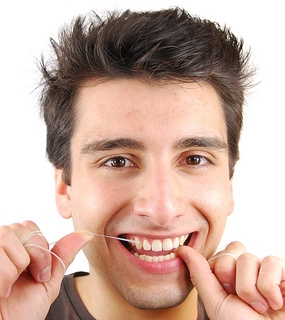Are you at risk for oral cancer?
July 26th, 2017

Nearly 40,000 people are diagnosed with oral cancer annually in the United States, with more than 8,000 dying every year from the disease. Oral cancer has a higher death rate than many other common cancers, including cervical cancer, testicular cancer, Hodgkin’s lymphoma, and thyroid or skin cancers. The high death rate results from the fact that most oral cancers go undiagnosed until the disease is well advanced and has spread to another part of the body, most often, the lymph nodes in the neck.
Drs. Sidney and Jacob Kelly and our team want you to know that cancers of the mouth and throat, which account for about three percent of all cancers in the United States, are largely preventable. However, we want you to know about certain risk factors that affect the likelihood of developing the disease.
- Use of tobacco products including smoking cigarettes, cigars or a pipe, or chewing tobacco all elevate risk for developing oral cancer. Tobacco use especially, is a serious risk factor because it contains substances called carcinogens, which harm cells in your mouth.
- Consumption of alcohol in excess can also increase your risk. If you drink alcohol regularly, you have an elevated risk of getting oral cancer. Alcohol abuse (more than 21 drinks in one week) is the second largest risk factor for the development of oral cancer, according to the Oral Cancer Foundation.
- Excessive sun exposure. People who spend lots of time outdoors and do not use proper amounts of sunscreen or lip balm have a greater risk for developing lip cancer. Exposure to ultraviolet (UV) radiation from sunlight may also cause melanoma, the most serious type of skin cancer.
If you notice unusual lumps, bumps, or red or white patches in your mouth that don’t go away, sores that won’t seem to heal, persistent soreness, or pain or difficulty swallowing please consult Drs. Sidney and Jacob Kelly and our team immediately.
Other factors that may influence your risk for developing oral cancer include:
- Age: Oral cancer is typically a disease that affects older people, usually because of their longer exposure to other risk factors. Most patients diagnosed with oral cancer are over the age of 40.
- Gender: Oral cancer strikes men twice as often as it does women.
- A history with viral infections, such as human papillomavirus (HPV)
- A diet low in fruits and vegetables
During your next visit, Drs. Sidney and Jacob Kelly will examine your mouth for signs of oral cancer. If you have been putting off a visit to our Roseville, CA office for your regular checkup, now is an excellent time to schedule one. Regular visits can be the first line of defense against oral cancer because we can identify early warning signs of the disease. Give us a call today!



